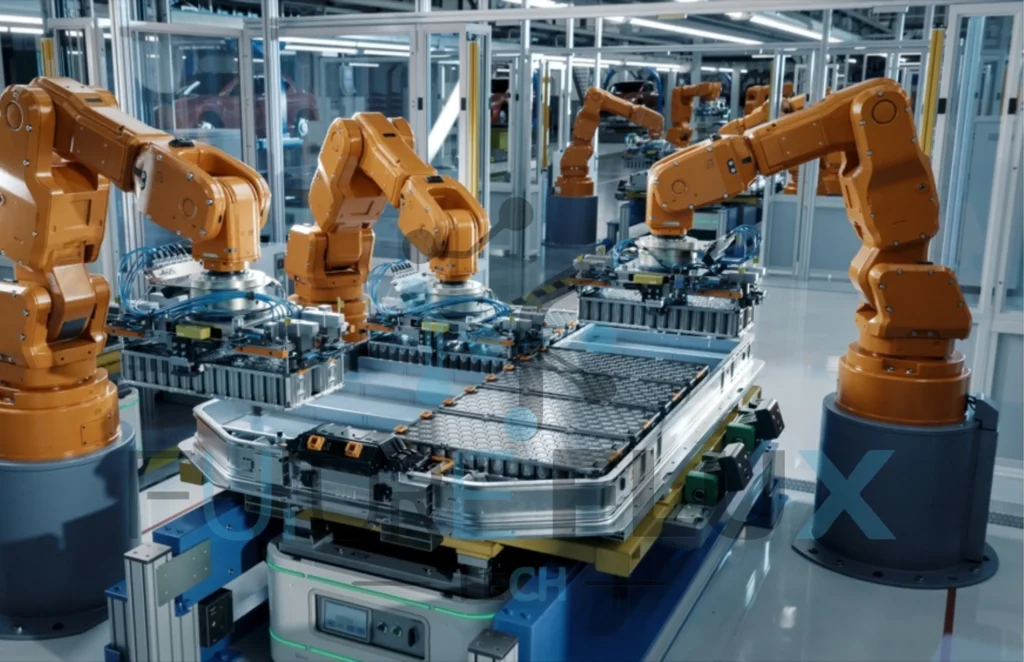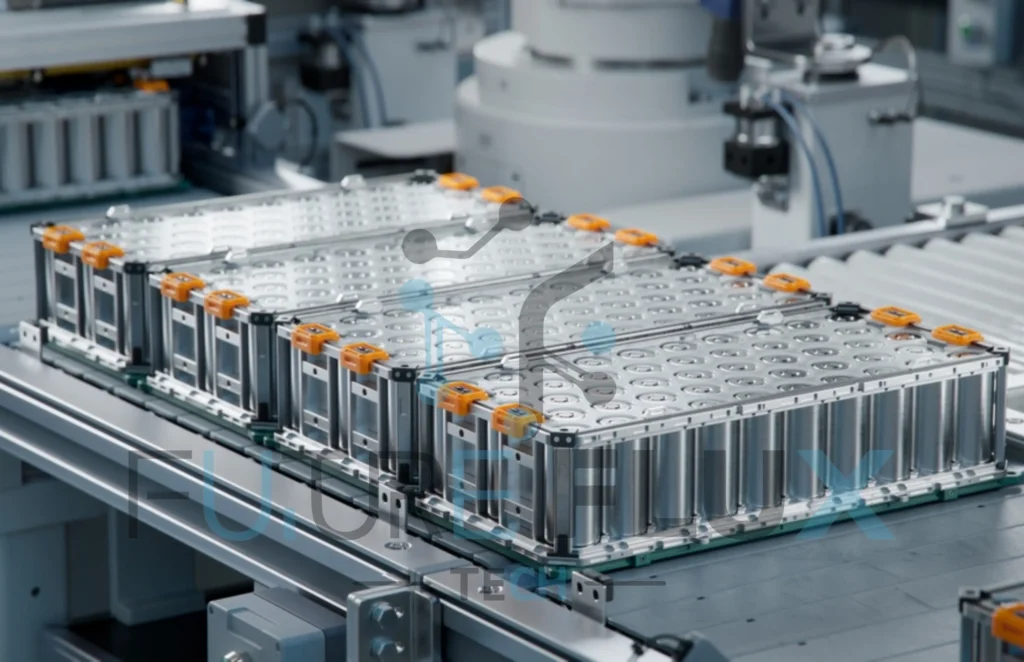Electric vehicles are always under new controversies. Some claim ‘they are the best alternatives to gas cars’, while others are skeptical. Their batteries are efficient and beneficial to the environment. However, that’s only one side of the picture. EV batteries are indeed eco-friendly but the process of making them is not. Most manufacturers are now considering electric vehicle battery recycling as a way to produce new batteries. Recycling saves money and reduces environmental impact. Moreover, recycling helps us make better use of our existing resources.
What is Electric Vehicle Battery Recycling?

Recycling is not an easy task. You need to ensure maximum mineral recovery and less pollution. Innovations in battery recycling can take us to a greener future, however, there’s one big problem. There are not enough batteries to recycle which leaves us at square one. Moreover, battery recycling is a labor-intensive process with lower recovery rates and higher costs. EV batteries usually last for 10 years or more, therefore, the need for second-life batteries keeps growing. Where do the batteries go after their life ends? Companies known as auto recyclers send the batteries to specialist firms for extraction of nickel and lithium. The firms separate all parts including wires, circuits, plastics, and cells. The cells and circuits are crushed to obtain the target metals. What’s more, other dealers cater to hybrid pack recycling and rely on collection programs to send the batteries to the auto recyclers. This improves Battery lifecycle management and resource handling.
What are the Benefits of EV Battery Recycling?

Battery recycling has a huge impact on the country’s economy. There are businesses assigned only for recycling EV batteries. Moreover, we cannot ignore the Environmental impact of EV batteries. Here are some benefits of EV battery recycling.
1- Waste reduction
EV batteries end up in landfills after their life ends. Usually, a battery starts losing its spark when its capacity reduces to 70 to 75 kWh. They are sent to the landfills where collection programs pick them up. The current global Recycling rates for EV batteries are only 5%. Collecting EV batteries from landfills reduces waste deposition and promotes a healthy ecosystem. Heavy metals react with rainwater and produce toxic compounds. These compounds are dangerous for humans and infrastructure. Therefore, Second-life batteries or recycled batteries can potentially minimise landfill deposition.
2- Resource handling
Our planet is blessed with plenty of resources. EV batteries are made of expensive metals which are hard to obtain. Miners have to be extra careful when extracting these metals from their respective mines. Moreover, EV battery processing is emission-intensive which contradicts their purpose. Electric vehicle battery recycling improves resource management. Companies can extract the metals and reuse them in newer batteries. Recycling saves mining costs and valuable resources. Conserving metals and minerals saves you the hassle of building new batteries from scratch.
3- Decrease pollution
Environmental pollution has increased the planet’s temperature significantly. Greenhouse gases are the major cause of ozone depletion and global warming. EV batteries are made with hazardous raw materials that produce emissions when processed. The Circular economy for EV batteries not only improves the battery supply chain but also caters to old battery recycling. Recycling reduces the need to produce newer batteries which saves time and money.
4- Saving energy
Mining can take up a lot of energy. Refineries are harder to mine and require expensive instruments to carefully extract the ores. Moreover, mining procedures are often dangerous to humans and their surroundings. Electric vehicle battery recycling reduces the need to mine new resources and saves energy costs. Virgin materials can cost you a fortune. Therefore, EV batteries are quite expensive to replace. However, recycled metals reduce battery replacement costs as Second-life batteries take their spot.
5- Employment options
In the beginning, I discussed auto recyclers who specialise in EV battery recycling. Similarly, the US is brimming with such businesses dealing with battery recycling. Recycling can create well-paying job opportunities for future engineers. Big names may invest in electric vehicle battery recycling. Moreover, the US observed a surge in battery investments following the Inflation Reduction Act. Creating more batteries will leave us with enough batteries for recycling purposes.
6- Material reuse
Recycled raw materials minimise the need to find newer materials. The extraction of metals from older batteries gives us enough raw material for EV battery reuse. Moreover, older batteries still have some life in them for reuse purposes. They are either repaired for future use or utilised in other fields. Globally, the EV industry aims to create standard protocols for effective battery repurposing. Second-life batteries can be used in communication towers, electrical grids, and energy storage. They are also used in solar farms, wind farms, and other natural reserves.
7- Eco awareness
Future generations are becoming more and more aware of climate change. They blame gas cars for producing carbon emissions resulting in the greenhouse effect. Eco-conscious owners want sustainable battery options that increase the credibility of electric vehicles. They claim that EVs’ battery-making process harms the environment more than saving it. They strive for true Sustainability in electric vehicles through battery recycling. Therefore, they demand more eco-stability from the companies. Second-life EV batteries are the best solution to their concerns.
8- Surpass competitors
Gas cars still hold the highest percentage on US roads. People are reluctant to buy EVs because of their high price tags and short ranges. However, electric vehicles have paved the way for better sustainable transportation. They are going hand in hand with their gas rivals. A rise in Innovations in battery recycling promises a bright future for electric-powered vehicles. Nickel and Lithium can be reused because of their metallurgic properties, however, fossil fuels still fail to deliver that. Moreover, these metals have a smaller carbon footprint than gasoline and petrol.
What are the Types of Battery Recycling?
Electric vehicle battery recycling is necessary for a greener future. How do companies recycle such complex batteries? There are three types of battery recycling. Each process is efficient but there are some exceptions.
1- Hydrometallurgical recycling
Hydrometallurgical recycling is the best way to recover metals and minerals. It uses water or dilute acids to extract metal from its ores. This type of battery recycling reduces Environmental impact of EV batteries and has high recovery rates. Sometimes, electricity is involved in recovering lithium from older batteries which is more eco-friendly and energy efficient.
2- Direct recycling
Ideally, direct recycling is more adequate for Lithium-iron-phosphate batteries. However, it is quite sustainable and has good recovery rates. Direct recycling does not interfere with the chemistry of battery components. It’s more suitable for EV battery reuse and recovery purposes. The cathode remains intact reducing the need for expensive additional processes.
3- Pyrometallurgical recycling
Commonly known as smelting, pyrometallurgical recycling is not ideal for battery recycling due to zero recovery rates. This process does not recover any target metal required to make newer batteries. Furthermore, it is hazardous to the environment which negates the purpose of electric vehicle battery recycling. Moreover, the products need additional refining before further processing.
Conclusion
Electric vehicles can substantially reduce global warming in the upcoming years. However, their batteries are still a problem. EV batteries are created using emission-intensive processes which harms the environment more than gasoline. Companies are trying to normalise electric vehicle battery recycling which reduces the need for newer batteries. Battery recycling can also save mining costs and minimise waste deposition in landfills. What’s more, virgin materials are harder to obtain. Recycling helps utilise our resources in the best way. Some companies offer Second-life batteries, a more sustainable way to reduce pollution.
Can EVs have engines? What is the Colorado tax vehicle credit? Find out more by visiting our blog.
I’m Waqas, an electric vehicle enthusiast and tech writer with over 6 years of experience covering the EV industry. I write in-depth articles, comparisons, and reviews to help readers understand the fast-evolving world of electric mobility. From battery technology to EV launches and charging trends, I aim to make complex EV topics simple, engaging, and informative for everyday drivers and curious readers alike.





